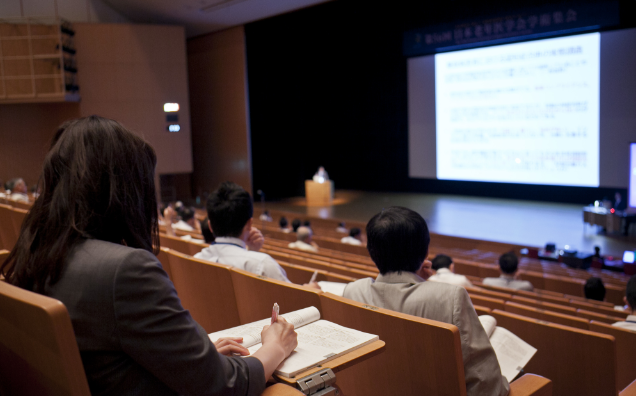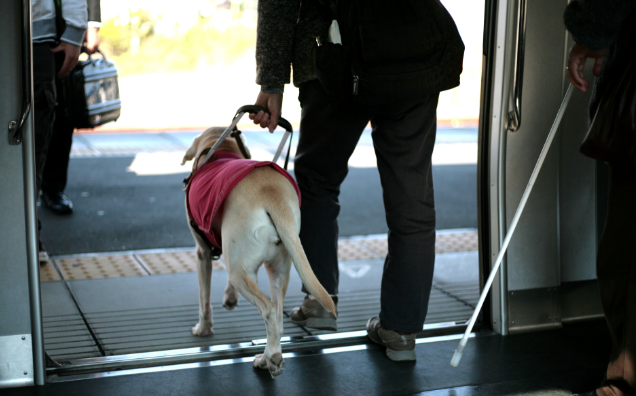- TOP >
- Efforts of D-SHiP32
Efforts of D-SHiP32 2916 Acty Shiodome, 1-1 Kaigan, Minato-ku, Tokyo
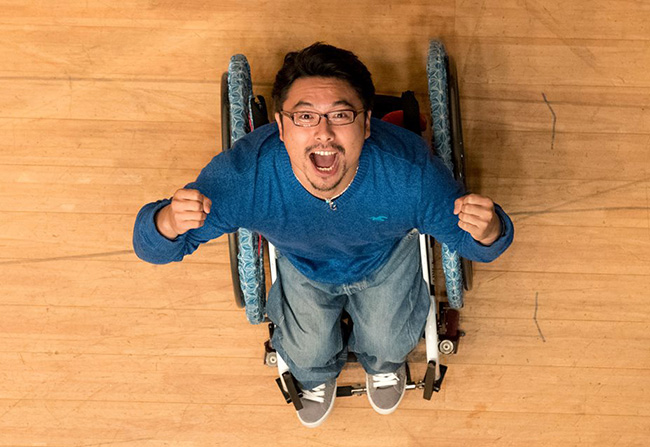
Finding solution for disabilities with the whole society and removing bad experience from the next generation
People with disabilities and their families have more unpleasant experience or thoughts than common people. The mission of D-SHiP32, a nonprofit organization, is not leaving the unpleasant experience or thoughts they had to the next generation, so their activity is to raise the attention to issues in the society and solve them. The representative director, Daisuke Uehara, told us the efforts of D-SHiP32.

Three pillars of activity
D-SHiP32 started from December 2014. I was a silver-medalist of Para Ice Hockey in the 2010 Vancouver Games, so I have chances to give talks. After one talk, a parent of a child with disability told me that it was already hard to let the child live a normal life, so they do not have leeway to let him play sports.
At that time, I recalled that my own parents also bowed and asked schools and ward offices to get me into normal schools and let me do the same things as other classmates. I noticed that if the parents do not have leeway, the children cannot play sports just like other children, so I started this activity to create an environment for children with disabilities to enjoy sports as normal. In the beginning, I did activities like camps for children with or without disabilities, cultivation and vegetable planting in Nagano. Now, we have mainly three programs targeting at three groups: parents, children and the society.
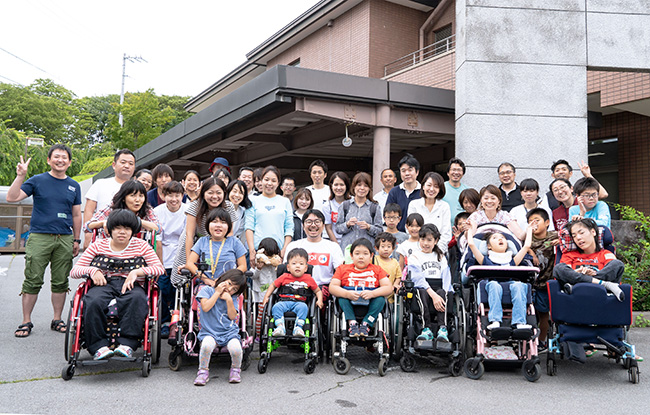
We want parents of children with disabilities to be happy always
In the program for parents, we take care of the children with disabilities and make free time for the parents. Originally, I started this activity because I want to create programs to support the parents. The D in D-SHiP32 stands for Dream, and 32 represents children. Though our concept is to deliver dreams to children and be a boat of children’s dreams, we also want the parents to return to the port and rest sometimes, so we also call it “parents’ port”.
In families with children with disabilities, a lot of time and effort are used to take care of and support the children. In order to keep all family members happy, it is important to take a rest and have their own time. Moreover, if the children with disabilities have siblings, often the parents will focus on the children with disabilities and their siblings may be forced to endure. Sometimes the siblings also need to spend time alone with their parents.
Besides, we also organize camps for all family members. I have a non-disabled younger brother, and I was told many times that my brother could join but not me. Because of this experience, our camps welcome everybody. At night, we offer a place for exchange between parents of children with disabilities. Our members will take care of the children so the parents can drink and talk. When the parents laugh, the children will also laugh, so we want the parents to be happy always.

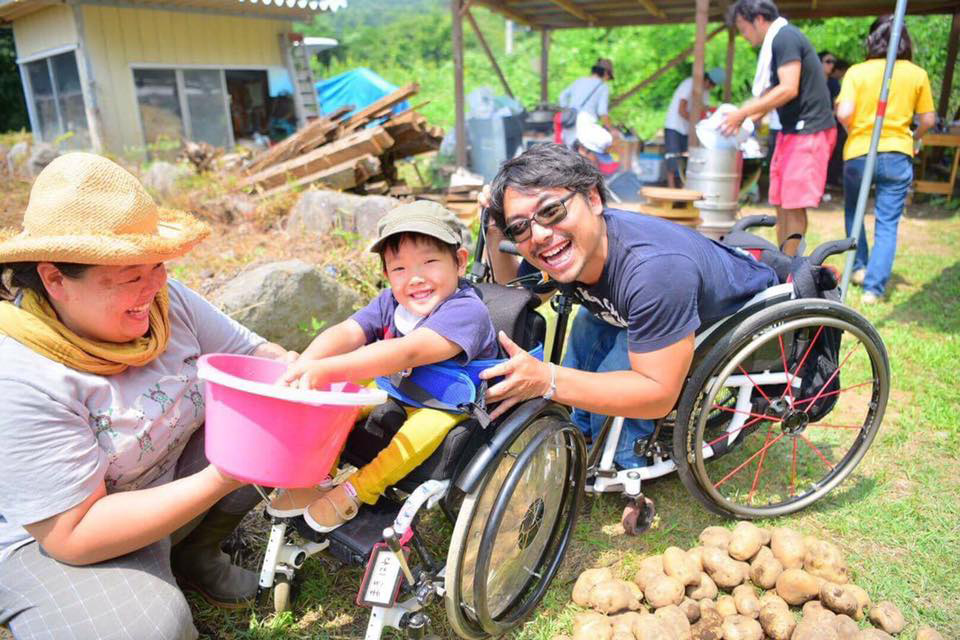
Let the children with disabilities experience “I did it!”
In the second program for children, we let the children with disabilities experience “I did it”. We do activities like potato digging during camping. Yet there is a big barrier for wheelchair users since wheels cannot move on soil. When there is a barrier, usually the wheelchair users will have to wait and cannot participate. However, it can be solved by simply placing a blue tarp on the field, so that the wheelchair users can also enjoy potato digging with others. Just a little effort can eliminate the barrier.
Moreover, we did a program called “Kids Challenge Trip”. Two children with wheelchairs who had not flew on a plane went to Vancouver without their families, and did what they want on their own. After they arrived Vancouver, they searched for places they want to go and things they want to do, and told us where they wanted to go. Since we only used the public transport, at first, we checked and taught them which bus to take. When they told us the next destination, they also told us the bus number they had checked. When we asked them to ask the hotel staff for a map, they spoke in English and got a map. They did a lot of things they want to do on their own. Seeing their growth in such a short time, we were so surprised. We have four members including me, and three are wheelchair users. In Vancouver, even when there was a long queue in front of the elevator, people let us use first every time. In Japan, they have to say sorry while moving, but in Vancouver, they had many chances to say thank you with smiles, so I believe it was a good experience for the children.
Nevertheless, there are many children who cannot go out. We also want to deliver various experiences to them, so we are now working on Metaverse education.

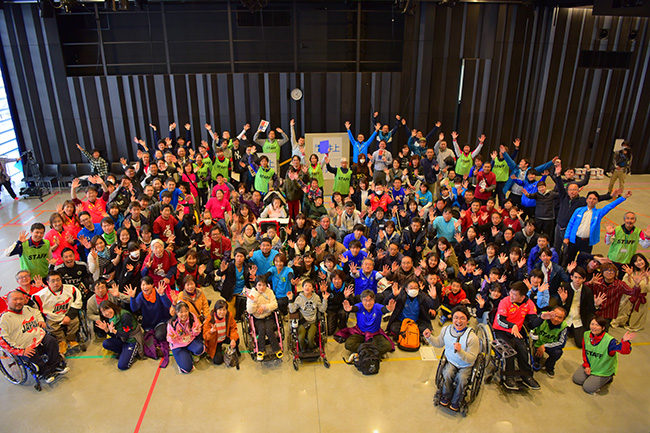
Adults need to notice barriers in the society
The third program for adults is mainly training. We use our sport wheelchairs, Boccia equipment in trainings and a program called “Wheelchair Sports Gomi”. In the program, while using wheelchairs to pick up rubbish on the street, participants can notice barriers for wheelchairs. Not only for companies, but it can also be used in school trips.
Wheelchair trainings are often held indoor, so people cannot notice the barriers on the street. In “Wheelchair Sports Gomi”, after learning how to use a wheelchair, different teams will go out and pick up rubbish while completing different missions. They compete by the total points of the amount of rubbish and missions completed. This idea came from a time when I was strolling in a park in London during the Paralympic Games. A senior man told me there were only stairs on the right so I should go to the left as there was a slope. You can help a wheelchair user with knowledge of the district. It is important to “know” so we are making programs for people to learn about disabilities and feel the joy of knowing.
People often say “experience level” but I usually say “experience the place”. Sounds you hear and things you can only see in that place, communications with people and tasty food contribute to your experience level. There are more restrictions for children with disabilities and their families to go out compared to common people. Still, I want them to visit many places and experience the place. Yet, what we can do is limited. As we proceed by collecting various ideas from different people and doing collaborations, I believe the number of children who have unpleasant feeling in their lives will decrease further in the next generation.

 social media accounts
social media accounts
Tokyo, a city that is accessible everywhere to anyone.
Sightseeing where you wish, as you wish.
This ability to travel anywhere you please makes life that much richer.
Tokyo welcomes your visit.
Here you can encounter tradition,
history, culture, nature, technology,
and, best of all, smiling faces.
Making tourism closer and more
enjoyable through accessible tourism.



